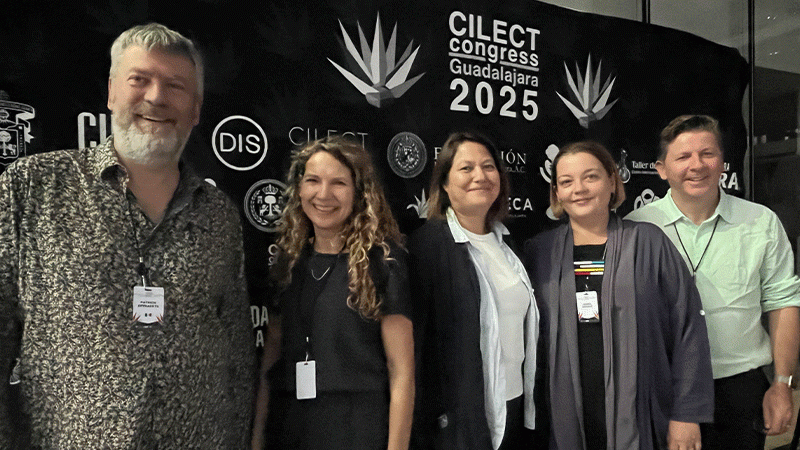Professor Lucy Brown, Head of Screen at the University of Westminster’s School of Media and Communication, has been elected as a member of the European Group of Film and Television Schools (GEECT). As part of the group, she will contribute to developing policy and partnerships across Europe, as well as promoting inclusive, forward-thinking and sustainable approaches to screen education.

GEECT is the European region of the International Association of Cinema, Audiovisual and Media Schools (CILECT), the world’s largest network of film and television schools. The Council includes distinguished film and television education experts from Ireland, Belgium, Croatia and France.
Over the past year, Professor Brown has served on the Standing Committee on Equity, Diversity and Inclusion (SCEDI) within the network, helping advance inclusive practice across CILECT’s global community. As part of the team she served as one of two European delegates contributing to CILECT’s global strategy on inclusive education and representation.
CILECT fosters international partnership, research and knowledge exchange and is strongly committed to equality, diversity and inclusion. It offers a forum for educators to collaborate in inspiring the next generation of filmmakers and creatives and to reflect on the role of audiovisual media in shaping society.
As part of her new role Professor Brown attended the CILECT Congress 2025, hosted by the University of Guadalajara in Mexico between 27-31 October, which brought together representatives from more than 180 institutions across 60 countries. This year’s theme, The Transformative Power of Conscience in Twenty-First Century Cinema, examined the social, ethical and educational responsibilities of film educators and the role of pedagogy in cultivating meaningful, socially engaged cinema.
At the Congress, Professor Brown represented SCEDI and presented the SCEDI Prize for Documentary Film, which recognised outstanding student work that advances equity and inclusion through storytelling. The event provided a valuable platform to share Westminster’s leadership in fostering diverse and socially engaged screen education and strengthen international collaboration across the CILECT network.
She was joined by Principal Lecturer Peter Hort, who presented a workshop on fairness in film education. The session explored what it means to experience unfairness, drawing on critical teaching theories including Paulo Freire’s Pedagogy of the Oppressed, and invited participants to reflect on how fairness and care can be embedded within film education.
Professor Brown said: “It is always inspiring to connect with colleagues from around the world who share our passion for inclusive and socially engaged film education. I’m honoured to represent Westminster and to contribute to GEECT’s work in strengthening collaboration and innovation across the European screen-education community.”
Hort added: “CILECT was created after World War Two to build bridges across the Iron Curtain. In today’s divided world, its values of compassion and responsibility and the connections it creates between teachers across the world who share these values, are more important than ever as we educate the next generation.”
The University’s engagement with CILECT and GEECT directly contributes to the United Nations Sustainable Development Goals (SDG) 4: Quality Education, 10: Reduced Inequalities and 17: Partnerships for the Goals. Since 2019, the University of Westminster has used the SDGs holistically to frame strategic decisions to help students and colleagues fulfil their potential and contribute to a more sustainable, equitable and healthier society.
Find out more about Film and Television courses at the University.






